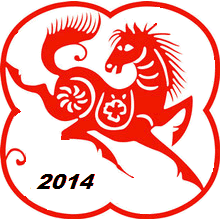.jpg?width=719&name=TEAM2%20Marcia4%20(watermarked).jpg)
I recently had the good fortune of meeting a very successful businessman who works globally. During the course of our conversation, I mentioned that I work with executive teams and teach graduate courses in team dynamics and leadership. He asked me if I knew the definition of a team.
“Yes,” I replied, and I would like to hear yours. He answered that the U.S. definition of a team is based on the acronym, TEAM. “Together everyone achieves more.”
In his global work, he went on, he and colleagues used to talk about another definition. This definition is a play on the U.S. acronym and uses a German phrase “Toll, ein anderer macht’s. He translated this as, “Great, someone else does it.” We both laughed as he explained that he and his colleagues have experienced the problem of freeloaders. He quickly went on to say that this definition in no way described work teams in Germany. It was just meant as a play on words.
Challenge of Freeloaders
I certainly know all about the challenge of freeloaders, both from my work with graduate students and years of working with business teams. One of the greatest challenges in our MBA learning teams is students who don’t embrace “together everyone achieves more.” Instead, a small number assume that someone else will do their work and that they will benefit from a good grade. Fortunately, our course has built in mechanisms to ensure that team members understand and leverage each other strengths, develop explicit rules of engagement, and learn productive ways to manage conflict and provide each other with feedback so that everyone is more likely to fully contribute.
All in all, the process works very well and our team of instructors is constantly implementing new ways to ensure responsible and accountable team behavior. Every once in a while, though, we have students who do let others do their work. These freeloading behaviors come in a number of varieties. Some wait until the last minute to start working. This makes teammates nervous so they jump in and do the other person's share. Others turn in such poor quality work to their teammates that it has to be redone. Still others promise to do the work and then consistently don't deliver. We leave it to the teams to work out these very real and tough challenges and most of them do a remarkably good job with the tools that we provide.
Install Processes
I have also worked with a number of corporate team. More often than not, by the time they bring in an outside consultant, team trust is broken. My job is to facilitate a process of restoring trust. I the provide a way for them to clarify roles and develop explicit rules of engagement. This is often enough to get the team rolling. Other times, helping the team leader and team member learn effective ways to manage conflict boosts team performance.
In the corporate world, effective managers provide feedback to team members who consistently don't perform. When that doesn't work, they remove the team members. Not removing them lowers morale and team members wonder why they are left to pick up the slack for freeloaders.
Origin of the TEAM phrase in German
After the conversation with my freind, I was curious about the origin of the phrase, “toll, ein anderer macht’s.” It turns out to alos be the name of a book by a German organization and management professor. The book, published in 2012, is not yet available in English. I eagerly await its translation. Meanwhile, what examples do you all have of productive team member behavior and unproductive, freeloading behavior? What are your antidoes?




